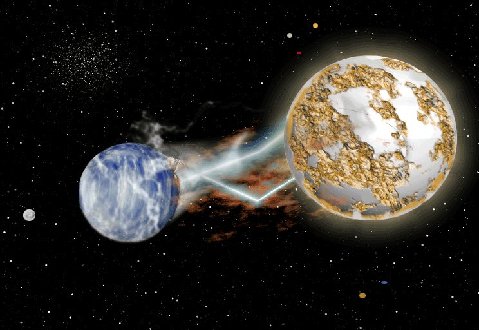Velikovsky: the Bonds of the Past - 1/6
| Immanuel Velikovsky | |
|---|---|
 Immanuel Velikovsky at the 1974 American Association for the Advancement of Science Conference in San Francisco | |
| Born | June 10, 1895 Vitebsk, Russia |
| Died | November 17, 1979 (aged 84) |
His books use comparative mythology and ancient literary sources (including the Bible) to argue that Earth has suffered catastrophic close-contacts with other planets (principally Venus and Mars) in ancient times. In positioning Velikovsky among catastrophists including Hans Bellamy, Ignatius Donnelly, and Johann Gottlieb Radlof,[2] the British astronomers Victor Clube and Bill Napier noted ". . . Velikovsky is not so much the first of the new catastrophists . . . ; he is the last in a line of traditional catastrophists going back to mediaeval times and probably earlier."[3] Velikovsky argued that electromagnetic effects play an important role in celestial mechanics. He also proposed a revised chronology for ancient Egypt, Greece, Israel and other cultures of the ancient Near East. The revised chronology aimed at explaining the so-called "dark age" of the eastern Mediterranean (ca. 1100 – 750 BCE) and reconciling biblical history with mainstream archaeology and Egyptian chronology.
In general, Velikovsky's theories have been ignored or vigorously rejected by the academic community.[4] Nonetheless, his books often sold well and gained an enthusiastic support in lay circles, often fuelled by claims of unfair treatment for Velikovsky by orthodox academia.[5][6][7][8] The controversy surrounding his work and its reception is often referred to as "the Velikovsky affair".[9][10]

Geen opmerkingen:
Een reactie posten